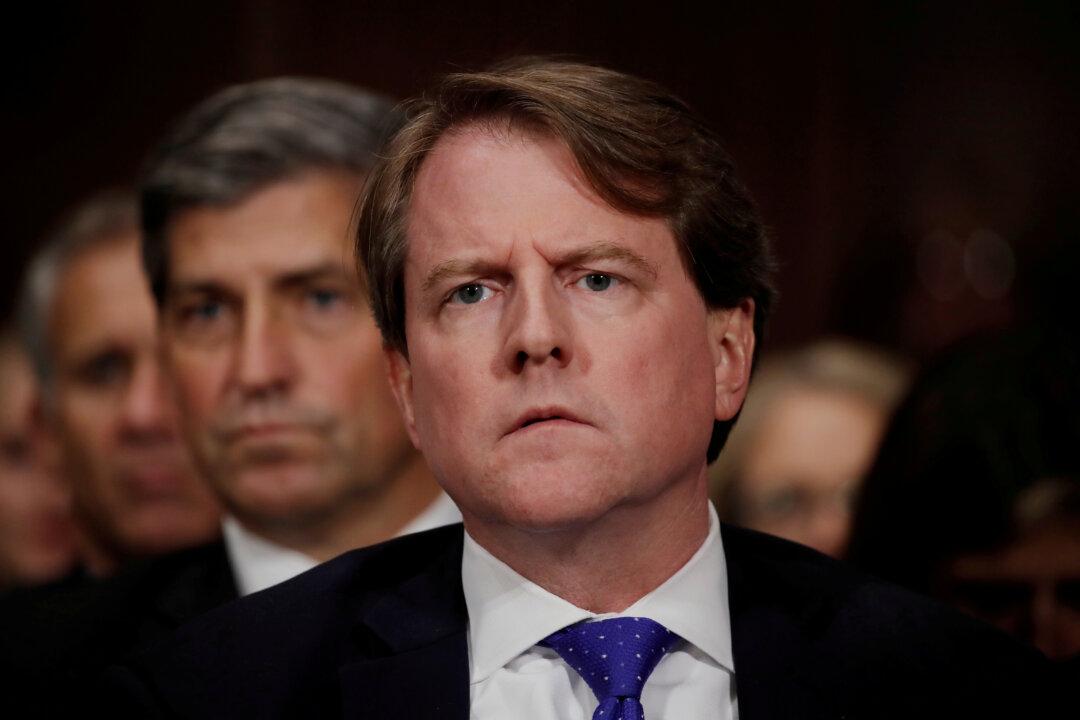A federal judge denied a request by President Donald Trump’s administration in the case of former White House counsel Don McGahn.
U.S. District Judge Ketanji Brown Jackson initially ruled last month that McGahn must comply with a subpoena issued by a congressional committee to testify in the impeachment inquiry. Two days later, she issued a temporary stay of her own order.





